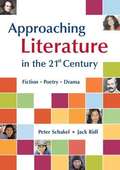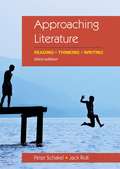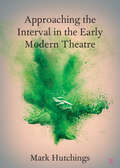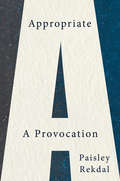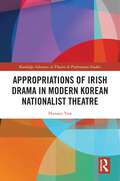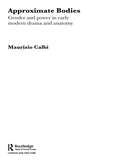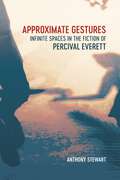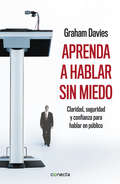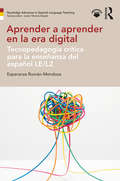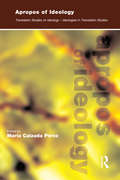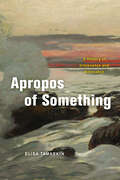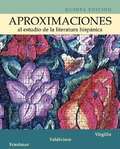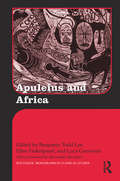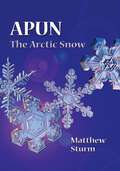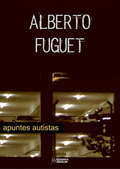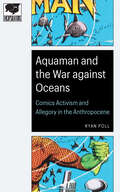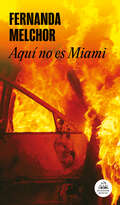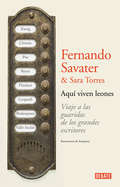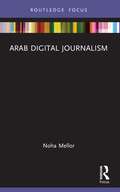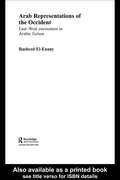- Table View
- List View
Approaching Literature in the 21st Century: Fiction, Poetry, Drama
by Jack Ridl Peter SchakelNIMAC-sourced textbook
Approaching Literature: Reading + Thinking + Writing (Third Edition)
by Jack Ridl Peter SchakelThe central aim of this book is to foster habits and skills of critical thinking. The third edition makes the book even more inclusive and accessible than the first and second editions. A unique feature of this book is its appendix on reading critical essays, which provides practical instruction on how to approach and read the academic essay, a genre that in itself is unfamiliar to many students, and which students may be asked to use as sources in their own writing.
Approaching the Interval in the Early Modern Theatre: The Significance of the 'Act-Time' (Elements in Shakespeare Performance)
by Mark HutchingsIn requiring artificial light, the early modern indoor theatre had to interrupt the action so that the candles could be attended to, if necessary. The origin of the five-act, four-interval play was not classical drama but candle technology. This Element explores the implications of this aspect of playmaking. Drawing on evidence in surviving texts it explores how the interval affected composition and stagecraft, how it provided opportunities for stage-sitters, and how amphitheatre plays were converted for indoor performance (and vice versa). Recovering the interval yields new insights into familiar texts and brings into the foreground interesting examples of how the interval functioned in lesser-known plays. This Element concludes with a discussion of how this aspect of theatre might feed into the debate over the King's Men's repertory management in its Globe-Blackfriars years and sets out the wider implications for both the modern theatre and the academy.
Appropriate: A Provocation
by Paisley RekdalA timely, nuanced work that dissects the thorny debate around cultural appropriation and the literary imagination. How do we properly define cultural appropriation, and is it always wrong? If we can write in the voice of another, should we? And if so, what questions do we need to consider first? In Appropriate, creative writing professor Paisley Rekdal addresses a young writer to delineate how the idea of cultural appropriation has evolved—and perhaps calcified—in our political climate. What follows is a penetrating exploration of fluctuating literary power and authorial privilege, about whiteness and what we really mean by the term empathy, that examines writers from William Styron to Peter Ho Davies to Jeanine Cummins. Lucid, reflective, and astute, Appropriate presents a generous new framework for one of the most controversial subjects in contemporary literature.
Appropriations of Irish Drama in Modern Korean Nationalist Theatre (Routledge Advances in Theatre & Performance Studies)
by Hunam YunThis book investigates the translation field as a hybrid space for the competing claims between the colonisers and the colonised. By tracing the process of the importation and appropriation of Irish drama in colonial Korea, this study shows how the intervention of the competing agents – both the colonisers and the colonised – formulates the strategies of representation or empowerment in the rival claims of the translation field. This exploration will be of great interest to students and scholars of theatre and performance studies, translation studies, and Asian studies.
Approximate Bodies: Gender and Power in Early Modern Drama and Anatomy
by Maurizio CalbiThe early modern period was an age of anatomical exploration and revelation, with new discoveries capturing the imagination not only of scientists but also of playwrights and poets. Approximate Bodies examines, in fascinating detail, the changing representation of the body in early modern drama and in the period's anatomical and gynaecological treatises. Maurizio Calbi focuses on the unstable representation of both masculinity and femininity in Renaissance texts such as The Duchess of Malfi, The Changeling and a variety of Shakespeare plays. Drawing on theorists including Foucault, Derrida and Lacan, these close textual readings examine the effects of social, psychic and cultural influences on early modern images of the body. Calbi identifies the ways in which political, social, racial and sexual power structures effect the construction of the body in dramatic and anatomical texts. Calbi's analysis displays how images such as the deformed body of the outsider, the effeminate body of the desiring male and the disfigured body parts of the desiring female indicate an unstable, incomplete conception of the body in the Renaissance. Compelling and impeccably researched, this is a sophisticated account of the fantasies and anxieties that play a role in constructing the early modern body. Approximate Bodies makes a major contribution to the field of early modern studies and to debates around the body.
Approximate Gestures: Infinite Spaces in the Fiction of Percival Everett
by Anthony StewartIn Approximate Gestures, Anthony Stewart argues that the writing of Percival Everett, the acclaimed author of Erasure and more than twenty other works of fiction, compels readers to retrain their thinking habits and to value uncertainty. Stewart maintains that Everett’s fiction challenges its interpreters to question their assumptions, consider the spaces in between categories, and embrace the potential of a larger, more uncertain world in an effort to confront bigotry and similarly limiting patterns of thought. Drawing on the work of Gilles Deleuze and Félix Guattari, Stewart proposes that their notion of the schizorevolutionary figure captures the in-between status of many of Everett’s characters as they refuse the constraints of the binary, categorical structures that govern so much of human life. Approximate Gestures engages specifically with the vexed question of discussing race in Everett’s fiction. Stewart frames the stakes of analyzing such subject matter in the writing of an African American novelist whose work rigorously questions critical approaches to race. Requiring readers to engage with black males who are hydrologists, ranchers, college professors, romance novelists, and in one case, a toddler, means entering a world released from habitual frames of reference. Through an examination of a broad selection of novels, Stewart demonstrates the extent to which Everett’s characters inhabit “infinite spaces in between conventional categories” and understand themselves as subjects attempting to navigate social and psychological worlds. Approximate Gestures: Infinite Spaces in the Fiction of Percival Everett encourages readers and critics to think more deeply about how they position themselves in and engage with the world around them. As one of the first books of literary criticism devoted to Everett’s fiction, Stewart’s pathbreaking study models a method for reading the formidable body of work being produced by a major contemporary writer.
Aprenda a hablar sin miedo: Claridad, seguridad y confianza para hablar en público
by Graham DaviesLa comunicación es la clave para el éxito. Descubra el método para hablar con seguridad y convencer con sus presentaciones. Seguramente detesta realizar presentaciones. Y probablemente también detesta asistir a ellas. ¿Por qué? Porque la mayoría resultan largas, aburridas... y van acompañadas por el consabido PowerPoint. Tanto si se dirige a una sola persona sentada frente a usted como si habla ante un auditorio repleto, en el fondo lo que importa es lo que diga, y cómo lo diga. Aprenda a hablar sin miedo le enseña a comunicar con claridad y confianza, y a dejar huella en todas las situaciones en las que deba expresarse en público. Aprenderá un método único, en cinco pasos, y válido para todo tipo de exposiciones en el ámbito empresarial, desde presentaciones a gran escala hasta reuniones con un solo cliente. Reseñas:«No conozco a nadie que pueda ostentar el título de "coach de las presentaciones" con más méritos que Graham.»Daniel Finklestein, director ejecutivo, The Times «Tanto si es usted primer ministro como si es director ejecutivo, o alguien que necesita causar impacto en los demás, debe leer este libro, innovador y crítico, de Graham Davies.»Neil Sherlock, socio, KPMG «Sinceramente, este libro me irrita, porque me encantaría que Graham lo hubiera escrito hace veinte años. De haber sido así, quizá no habría tenido que pasarme innumerables horas torturado por inversores de banca que creen que "presentar" significa leer en voz alta todas las palabras que aparecen en sus diapositivas.»Richard Klein, director general, Bank of America Merrill Lynch «Nunca más volverá a cometer el delito de aburrir a su audiencia con interminables frases cortas.»Penny Philpot, vicepresidente, Worldwide Partner Services, Oracle «Graham Davies es un maestro del humor que demuestra que la mejor manera de exponer un asunto serio es contando un buen chiste.»Boris Johnson, Presidente de Reino Unido
Aprende y demuestra: Know It Show It Grade K (¡Arriba la Lectura!)
by Houghton HarcourtNIMAC-sourced textbook
Aprende y demuestra: Práctica independiente [Grado 5] (¡Arriba la Lectura!)
by AvisoNIMAC-sourced textbook
Aprender a aprender en la era digital: Tecnopedagogía crítica para la enseñanza del español LE/L2
by Esperanza Román-MendozaAprender a aprender en la era digital provides a comprehensive, state-of-the-art account that empowers readers to leverage learning technologies to promote second language learner autonomy. Written entirely in Spanish, the book covers a breadth of innovative topics in the teaching of Spanish via and with technology, such as emerging pedagogies, autonomous and participatory learning, learner agency and identity, teacher development, and post-communicative curriculum design. Key features: a novel and unique approach, combining the latest research on learning autonomy and instructional technologies in language learning; an emphasis on the connections between theory and practice, with concrete suggestions for using technology in the classroom; an extensive selection of curricular and pedagogical tools that can be easily adapted to various teaching and learning environments and needs; a broad selection of bibliographical references for further reading and research; a bilingual glossary of key techno-pedagogical terms; a catalogue with over 250 tools for second language learning and teaching, with contextualized examples of their practical application; a comprehensive eResource with a wealth of additional materials, including access to a database of technological tools and best practices in teaching Spanish with technology. Written in a clear and accessible manner, Aprender a aprender en la era digital is ideal for instructors of Spanish at all educational levels. The book will also be of great interest to teachers of languages other than Spanish, as well as graduate students pursuing a degree in Spanish, Educational Technology or Language Education.
Apropos of Ideology: Translation Studies on Ideology-ideologies in Translation Studies
by Maria Calzada-PerezToday's worldwide ideological tensions have captured the interest of such varied disciplines as political science, anthropology, sociology, cultural studies and linguistics. There are two primary reasons why translation studies cannot ignore the ideological debate. Historically, translation has always been a site for ideological clashes. In addition, globalization is now setting off translational mechanisms even within monolingual artifacts, and this calls for the expertise of translation scholars. Apropos of Ideology aims to contribute to the broader discussion of ideology by providing a forum for debating ideological issues in translation as well as by bringing together, within the pages of a single volume, different types of translation research, informed by very different research ideologies. Adopting a wide definition of ideology as a set of ideas, beliefs and codes of behaviour that "govern a community by virtue of being regarded as the norm", a number of translation scholars look into ideological phenomena as they impinge on the process of translation. They consider questions of politics, but also reflect upon gender, sexuality, religion, secularity, technology and even the very discipline of translation studies. At the same time, the volume displays the kaleidoscopic complexity of the discipline while providing a strong argument that such diversity of perspectives is highly desirable. Contributors include Maria Tymoczko, Rosemary Arrojo, Christiane Nord, Keith Harvey, Peter Fawcett, Ma Carmen Africa Vidal, Christina Schäffner, David Katan, Francesco Straniero-Sergio, and Sehnaz Tahir.
Apropos of Something: A History of Irrelevance and Relevance
by Elisa TamarkinA history of the idea of “relevance” since the nineteenth century in art, criticism, philosophy, logic, and social thought. Before 1800 nothing was irrelevant. So argues Elisa Tamarkin’s sweeping meditation on a key shift in consciousness: the arrival of relevance as the means to grasp how something that was once disregarded, unvalued, or lost to us becomes interesting and important. When so much makes claims to our attention every day, how do we decide what is most valuable right now? Relevance, Tamarkin shows, was an Anglo-American concept, derived from a word meaning “to raise or to lift up again,” and also “to give relief.” It engaged major intellectual figures, including Ralph Waldo Emerson and pragmatists and philosophers—William James, Alain Locke, John Dewey, and Alfred North Whitehead—as well as a range of critics, phenomenologists, linguists, and sociologists. Relevance is a struggle for recognition, especially in the worlds of literature, art, and criticism. Poems and paintings in the nineteenth century could now be seen as pragmatic works that make relevance and make interest—that reveal versions of events that feel apropos of our lives the moment we turn to them. Vividly illustrated with paintings by Winslow Homer, Henry Ossawa Tanner, and others, Apropos of Something is a searching philosophical and poetic study of relevance—a concept calling for shifts in both attention and perceptions of importance with enormous social stakes. It remains an invitation for the humanities and for all of us who feel tasked every day with finding the point.
Aproximaciones al Estudio de la Literatura Hispánica (quinta edición)
by Carmelo Virgillo Teresa Valdivieso Edward FriedmanAproximaciones al estudio de la literatura hispánica, Fifth Edition, offers the undergraduate Spanish student---major or nonmajor---an elementary yet comprehensive introduction to literary analysis. Such a text is essential if one is to develop an adequate appreciation of Spanish and Spanish-American literature. Aimed primarily, but not exclusively, at the third-year level of the college curriculum, Aproximaciones provides those possessing a relatively limited knowledge of Spanish, as well as native speakers, with the opportunity not only to grasp the various levels of meaning of the literary texts contained herein, but also to acquire the technical vocabulary needed to describe and debate literary issues appropriately.
Apuleius and Africa (Routledge Monographs in Classical Studies)
by Benjamin Todd Lee Ellen Finkelpearl Luca GraveriniThe Metamorphoses or Golden Ass of Apuleius (ca. 170 CE) is a Latin novel written by a native of Madauros in Roman North Africa, roughly equal to modern Tunisia together with parts of Libya and Algeria. Apuleius’ novel is based on the model of a lost Greek novel; it narrates the adventures of a Greek character with a Roman name who spends the bulk of the novel transformed into an animal, traveling from Greece to Rome only to end his adventures in the capital city of the empire as a priest of the Egyptian goddess Isis. Apuleius’ Florida and Apology deal more explicitly with the African provenance and character of their author while also demonstrating his complex interaction with Greek, Roman, and local cultures. Apuleius’ philosophical works raise other questions about Greek vs. African and Roman cultural identity. Apuleius in Africa addresses the problem of this intricate complex of different identities and its connection to Apuleius’ literary production. It especially emphasizes Apuleius’ African heritage, a heritage that has for the most part been either downplayed or even deplored by previous scholarship. The contributors include philologists, historians, and experts in material culture; among them are some of the most respected scholars in their fields. The chapters give due attention to all elements of Apuleius’ oeuvre, and break new ground both on the interpretation of Apuleius’ literary production and on the culture of the Roman Empire in the second century. The volume also includes a modern, sub-Saharan contribution in which "Africa" mainly means Mediterranean Africa.
Apun: The Arctic Snow
by Matthew SturmThere are some twenty-five words for “snow” in the Inupiaq language. Each word denotes a different kind of snow—fresh powder snow, hard pack, soft snow, very wet snow, or just snow. Such fine distinction is reasonable, for over the centuries, Natives of the Arctic have had to rely on their knowledge of the snow to survive. Now Matthew Sturm has prepared an educational children’s book designed to teach a new generation of Arctic residents the importance of Arctic snow cover. Fully illustrated to demonstrate the cycle of the snow cover, Apun covers each phase of the “snow year.” Geared towards grades 3–4, this is a must read for elementary science classes.
Apuntes autistas
by Alberto Fuguet"Pocos autores son tan honestos o personales al confrontar no sólo lo que escriben, sino quienes son como creadores". Marcelo Rioseco, World Literature Today Una autobiografía en clave, una declaración de principios, un remix emocional; un libro híbrido que se puede leer quizás como una novela de no-ficción o un testimonio arbitrario escrito desde la república del fan; un ensayo que ensaya y duda y opta; un diario de lecturas y películas de un crítico de cine que se transforma en escritor, y de un autor que sueña con filmar y lo logra. Viajar, mirar, leer y narrar son las partes, los capítulos, pero también los verbos que mejor se conjugan en Apuntes autistas. La reedición de este libro, que dio inicio a obras tan claves, personales y liminales como Missing: una investigación; Mi cuerpo es una celda; Cinépata: una bitácora, y Tránsitos: una cartografía, deja claro que el mundo y la voz de Fuguet narrando ficción o haciendo crónica son siempre los mismos.
Aquaman and the War against Oceans: Comics Activism and Allegory in the Anthropocene (Encapsulations: Critical Comics Studies)
by Ryan PollThe reimagining of Aquaman in The New 52 transformed the character from a joke to an important figure of ecological justice. In Aquaman and the War against Oceans, Ryan Poll argues that in this twenty-first-century iteration, Aquaman becomes an accessible figure for charting environmental violences endemic to global capitalism and for developing a progressive and popular ecological imagination. Poll contends that The New 52 Aquaman should be read as an allegory that responds to the crises of the Anthropocene, in which the oceans have become sites of warfare and mass death. The Aquaman series, which works to bridge the terrestrial and watery worlds, can be understood as a form of comics activism by its visualizing and verbalizing how the oceans are beyond the projects of the &“human&” and &“humanism&” and, simultaneously, are all-too-human geographies that are inextricable from the violent structures of capitalism, white supremacy, and patriarchy. The New 52 Aquaman, Poll demonstrates, proves an important form of ocean literacy in particular and ecological literacy more generally.
Aquí no es Miami
by Fernanda MelchorLas crónicas de Fernanda Melchor dan cuenta de la degradación humana en uno de sus aspectos más sórdidos. Lo que su libro hace es manifestar la ignominia en toda esta rudeza. En una época de límites borrosos entre la verdad y la mentira, el caos y el orden, el horror y la indolencia, la delincuencia organizada y el Estado, aparece Aquí no es Miami, un libro de relatos híbridos, aleación entre periodismo y literatura, que aborda lúcidamente las condiciones que germinaron el terror de la llamada Guerra contra el Narcotráfico en un estado especialmente golpeado por esta debacle como lo es Veracruz. Más allá de la intención de entregar un recuento de datos duros, Melchor nos ofrece historias sobre personas: víctimas y criminales, sí, pero sobre todo hombres y mujeres comunes entregados a la lucha por la supervivencia, con esa mirada suya honda y compasiva, pero cruda y directa, con la que es inevitable involucrarse y conmoverse. El Veracruz de Fernanda Melchor no es tanto un escenario sino un personaje en esta ola de violencia. La cercanía de la autora con las historias que narra, y un uso siempre arriesgado del lenguaje, son las mayores fortalezas de esta nueva edición revisitada que cuenta con una nueva crónica. Y aunque estos relatos se enmarcan en una temporalidad, son aún reflejo deun país cuyas arenas siguen siendo movedizas.
Aquí viven leones
by Fernando Savater Sara TorresUn delicioso recorrido por la obra y los lugares más emblemáticos de ocho escritores fundamentales. El regreso de Savater a su faceta más divulgativa. En Aquí viven leones, Fernando Savater vuelve a una de sus facetas favoritas, la de divulgador de la literatura y el pensamiento. A través de ocho viajes inolvidables, ilustrados magníficamente por Anapurna, nos presenta la obra y la vida de Shakespeare, Valle Inclán, Poe, Leopardi, Agatha Christie, Reyes, Flaubert y Zweig. Son ocho extraordinarias introducciones a sendos autores clave de la literatura universal de muy distintos registros. Un libro maravilloso para entrar en el mundo de estos escritores, conocer su obra y disponer de más claves para poder disfrutarla. Reseña:«Un libro hermoso y bien ilustrado en todos los sentidos.»Luis M. Alonso, La Opinión de A Coruña
Arab Digital Journalism (Disruptions)
by Noha MellorResponding to urgent calls to de-westernise Media and Journalism Studies and shed light on local agency, this book examines digital journalistic practices in the Arab region, exploring how Arab journalists understand their roles and how digital technologies in Arab newsrooms are used to influence public opinion. Drawing on tens of articles penned by Arab media professionals and scholars, supplemented with informal conversations with journalists, this book reviews the historical development of digital journalism in the region and individual journalists’ perceptions of this development. While technology has provided a new platform for citizens and powerful agents to exchange views, this text examines how it has simultaneously allowed Arab states and authorities to conduct surveillance on journalists, curtail the rise of citizen journalism, and maintain offline hierarchal forms of political, economic, and cultural powers. Mellor also explores how digital technology serves to cement Western hegemony of the information world order, with Arab media organisations and audiences judged to be mere recipients, rather than producers, of such information. Arab Digital Journalism offers an important contribution to the emerging field of digital journalism in the Global South and is a valuable resource for students and researchers interested in media, journalism, communication, and development studies.
Arab Representations of the Occident: East-West Encounters in Arabic Fiction (Culture and Civilization in the Middle East)
by Rasheed El-EnanyThis is one of the first books in English to explore Arab responses to Western culture and values in modern Arab literature. Through in-depth research El-Enany examines the attitudes as expressed mainly through works of fiction written by Arab authors during the twentieth, and, to a lesser extent, nineteenth century. It constitutes an original addition to the age-old East-West debate, and is particularly relevant to the current discussion on Islam and the West. Alongside raising highly topical questions about stereotypical ideas concerning Arabs and Muslims in general, the book explores representations of the West by the foremost Arab intellectuals over a two-century period, up to the present day, and will appeal to those with an interest in Islam, the Middle East, nationalism and the so-called ‘Clash of Civilizations’.
